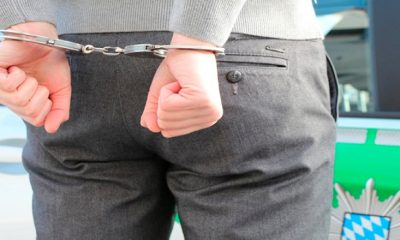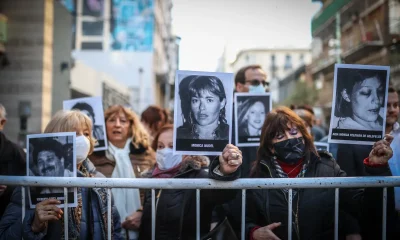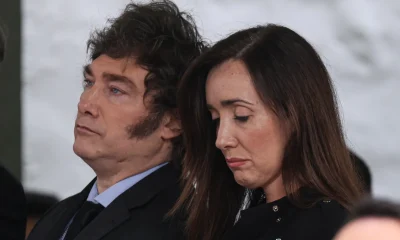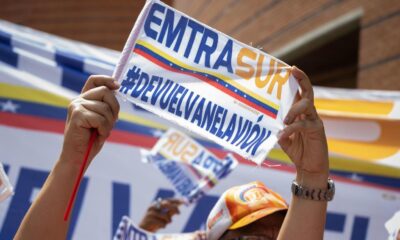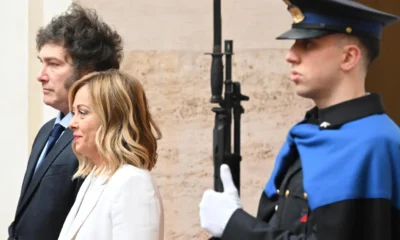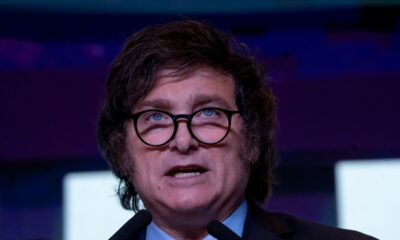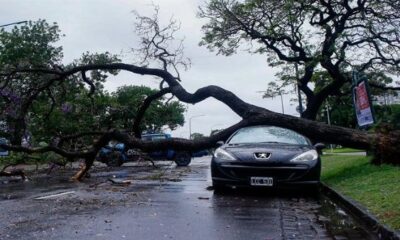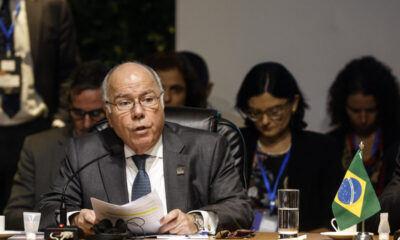International
Founder of Argentina’s anti-dictatorship ‘mothers’ dies aged 93
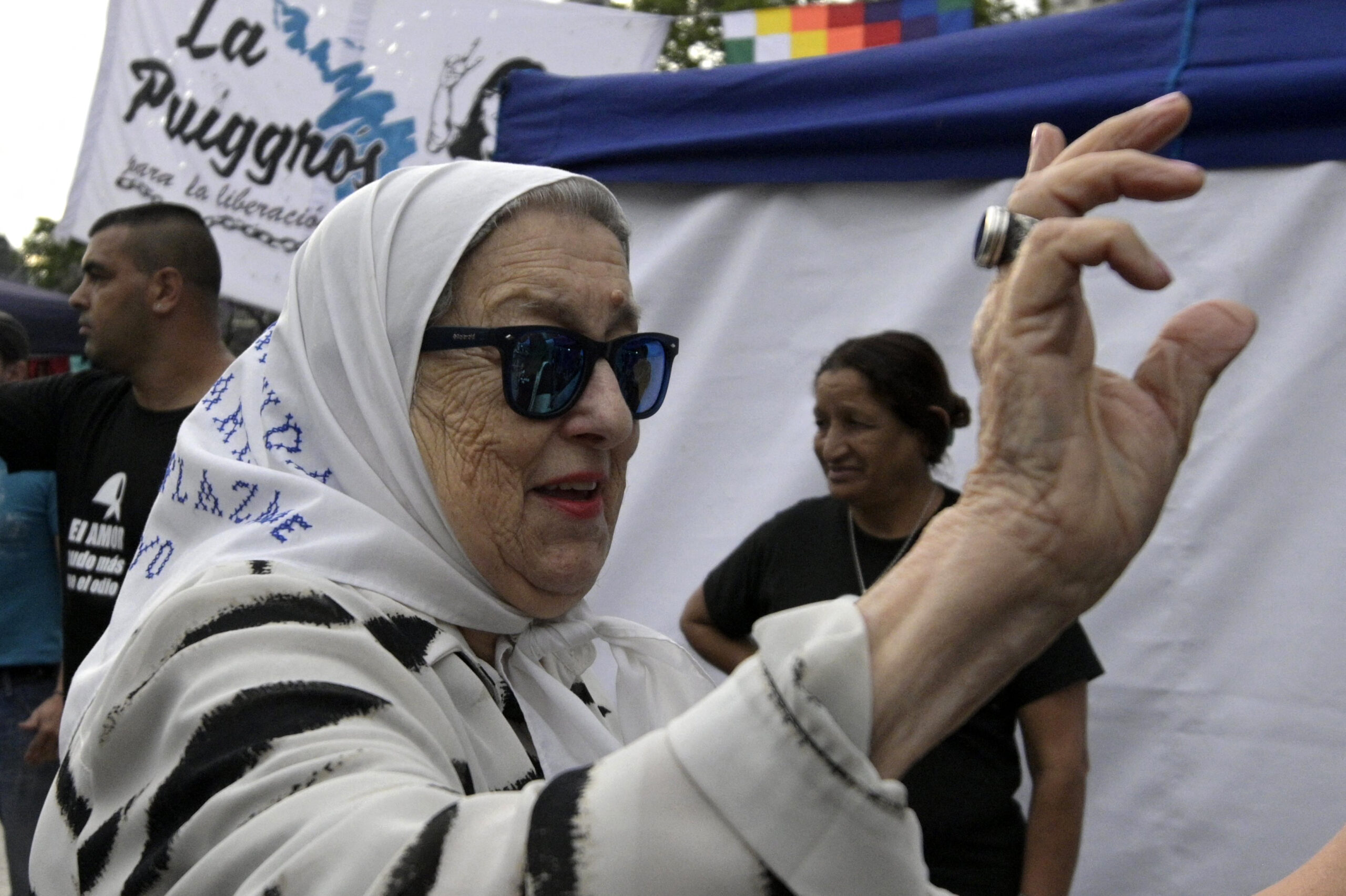
| By AFP |
Hebe de Bonafini, who led a group of Argentine women known as the Mothers of Plaza de Mayo in defying the military dictatorship and demanding the truth about their missing children, died Sunday at 93, the country’s vice-president said.
Bonafini was one of the founders of the group in 1977, uniting a group of mothers who protested in front of the presidency, desperate to know the whereabouts of tens of thousands who were abducted during the brutal 1976-1983 military regime.
For 45 years, through different governments, the women continued to meet, marching around the Plaza de Mayo in their trademark white headscarves, in an often futile search for justice.
Vice President Cristina Kirchner announced Bonafini’s death on Twitter, praising her as a “world symbol of the fight for human rights, pride of Argentina.”
Her daughter, Alejandra Bonafini, confirmed her death at a Buenos Aires hospital where she had been admitted for several days.
“These are very difficult moments of deep sadness, and we understand the love people have for Hebe. But, right now, we need to cry in private,” wrote Alejandra.
Argentina’s President Alberto Fernandez said Bonafini was a “tireless fighter for human rights,” and declared three days of national mourning.
“The government and the Argentine people recognize her as an international symbol of the search for memory, truth and justice for the 30,000 missing,” he added in a statement.
“As founder of the Mothers of Plaza de Mayo, she shone a light in the middle of the dark night of military dictatorship, and lay a path to the recovery of democracy.”
The governments of Cuba and Venezuela also paid tribute to Bonafini.
Kidnapping of leftists, babies
Some 30,000 people were abducted and presumed killed by the regime or right-wing death squads in the 1970s and 1980s for being suspected leftists.
That was compounded by the drama of widespread kidnapping of babies born to suspected dissidents being held during the right-wing dictatorship.
Many babies — offspring of now-dead dissidents — were born in captivity without the knowledge of their blood relatives and were given to military families to adopt.
Bonafini, who attended rallies in recent years in her wheelchair, was born in 1928 in Ensenada, a town 60 kilometers (37 miles) from Buenos Aires.
She was a housewife when the military seized power in 1976, ousting Isabel Peron, the wife of late president Juan Peron.
However, in 1977, her sons and daughter-in-law were kidnapped and disappeared.
“I forgot who I was the day they disappeared. I never thought of myself again,” Bonafini said recently at the launch of a photo exhibition on her life.
A few months later, she and a small group of women began protesting in front of the Casa Rosada, the pink presidential palace.
The mothers risked the same fate as their political activist children — torture, death or simply disappearing without a trace. Instead, the generals tried to laugh them off, mocking them as “madwomen.”
The women circled the Plaza de Mayo every Thursday until the Covid pandemic broke out, becoming famous worldwide for their struggle.
In later years, Bonafini became a more controversial figure, becoming a radical supporter of leftist Kirchnerism and staunch backer of former president Nestor Kirchner and his wife Cristina, the current vice president.
In 2017, she was prosecuted for alleged misappropriation of funds meant for building homes for the poor, which she said was a political act by then-President Mauricio Macri, who she considered an “enemy.” The case had not been resolved at the time of her death.
International
Federal Judge Blocks Trump Policy Allowing Deportations to Third Countries

A federal judge ruled on Wednesday that the policy of U.S. President Donald Trump’s administration allowing immigration authorities to deport foreign nationals to third countries without prior notice or the opportunity to object is unlawful. The decision marks another legal setback for the administration on immigration matters.
Judge Brian Murphy of the U.S. District Court for the District of Massachusetts struck down the regulation issued last year, which stated that Immigration and Customs Enforcement (ICE) was not required to notify migrants if they were to be sent to countries other than the one listed in their removal order, provided that receiving nations offered assurances they would not face persecution or torture.
Murphy ordered the measure vacated but granted a 15-day delay before the ruling takes effect, giving the Trump administration time to file an appeal.
In his decision, the judge concluded that the policy violates federal immigration law and migrants’ due process rights. He also questioned the lack of transparency surrounding the alleged assurances provided by receiving countries, stating that “no one really knows anything about these supposed ‘assurances.’” He added, “It is not right, and it is not lawful.”
The ruling follows several legal disputes involving deportations to third countries. Last year, the executive branch deported more than 200 Salvadorans to a maximum-security prison in El Salvador, invoking an old wartime law. The White House also held talks with Costa Rica, Panama, and Rwanda about receiving migrants who are not citizens of those countries.
In May, the same judge determined that the government violated a court order when it attempted to remove a group of immigrants with criminal records to South Sudan without prior notice or an opportunity to raise claims of fear of persecution.
Although President Donald Trump took the case to the U.S. Supreme Court, which temporarily allowed the deportations to resume while a final decision was pending, the White House is expected to again appeal to higher courts to overturn this latest judicial ruling.
International
Cocaine Production Surges 34% in 2023 as Market Expands into Africa and Asia

The global cocaine market is the fastest-growing among all illicit drugs worldwide, the International Narcotics Control Board (INCB) warned on Thursday in its annual report presented in Vienna.
The body attributes this expansion to the sustained rise in production in South America — particularly in Colombia — as well as increasing demand in emerging regions such as Africa and Asia.
According to the report, global cocaine production surpassed 3,700 metric tons in 2023, marking a 34% increase compared to 2022. This growth is largely driven by the expansion of illicit coca cultivation in Colombia and the greater production capacity of clandestine laboratories.
The INCB noted that the market has not only grown in volume but has also diversified and become more globalized. While Europe and North America remain the primary destinations, trafficking routes now reach “all regions of the world,” including Africa — traditionally considered a transit zone — and Asia, where the presence of cocaine was previously marginal.
In Western and Central Europe, for the fifth consecutive year, seizures in 2023 exceeded those in North America, consolidating the region as the leading destination market. Between January 2019 and June 2024, more than 1,826 metric tons of drugs bound for European ports were seized, of which 82% was cocaine, equivalent to 1,487 metric tons.
The report also highlights that seizures in Africa rose by 48% in 2023 compared to 2022, reflecting the expansion of the market on the continent. Globally, the number of cocaine users increased from 17 million in 2013 to 25 million in 2023.
International
Clinton Accuses Republican Committee of Using Epstein Case to Shield Trump
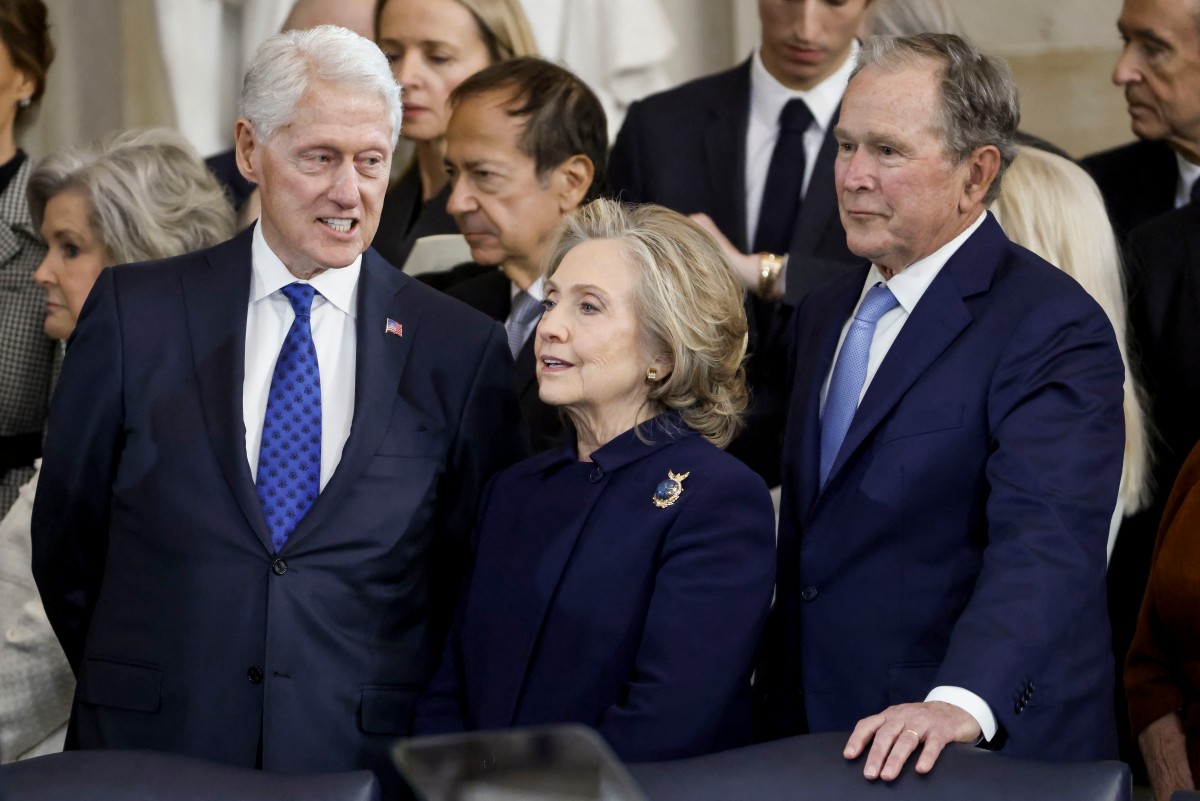
Former U.S. Secretary of State and former First Lady Hillary Clinton denied on Thursday before a congressional committee that she had ever met convicted sex offender Jeffrey Epstein in person or had any knowledge of the crimes he committed.
Clinton testified behind closed doors from New York before the House Oversight Committee. The wife of former President Bill Clinton — who is scheduled to testify on Friday — accused the Republican-controlled committee of summoning her in order to “distract attention” and “cover up” the activities of President Donald Trump, who had past ties to Epstein.
“I do not recall ever meeting Mr. Epstein. I never flew on his plane nor visited his island, his homes, or his offices. I have nothing further to add,” she stated.
The former Secretary of State emphasized that she “had no idea about the criminal activities” of the financier, who died in prison in 2019. “Like any decent person, I was horrified when I learned of his crimes,” she said.
Clinton described the Epstein case as “a tragedy” and “a scandal” that deserves “a thorough investigation,” but criticized the committee for failing to summon what she called the truly relevant individuals.
“Instead, you have asked me to testify, knowing that I have no knowledge that would serve your investigation, with the purpose of distracting from President Trump’s activities and shielding him despite the legitimate demand for answers,” she said.
The questioning, conducted behind closed doors in Chappaqua, New York — where the Clintons reside — took place one day before former President Bill Clinton was scheduled to appear at the same location.
Although the Clintons initially declined to testify before Congress, the threat of being held in contempt ultimately led the former presidential couple to agree to appear and explain their relationship with Epstein.
-

 International1 day ago
International1 day agoFamily of “El Mencho” Seeks Return of Body After Deadly Military Operation
-

 International1 day ago
International1 day agoLarry Summers Steps Down from Harvard Role Amid Epstein Controversy
-
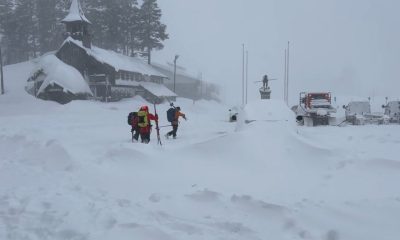
 International5 days ago
International5 days agoNinth Victim Recovered After Deadliest U.S. Avalanche in Decades
-

 International3 days ago
International3 days agoOver 40 Million Affected by Major Snowstorm in Northeastern U.S.
-

 International1 day ago
International1 day agoIran’s President Optimistic Ahead of Geneva Nuclear Talks with U.S.
-

 International1 day ago
International1 day agoStephen Hawking Photo Appears in Newly Released Epstein Documents
-

 International1 day ago
International1 day agoBill Gates Admits “Serious Mistake” Over Epstein Ties
-

 International3 days ago
International3 days agoNine People Killed in Two Armed Attacks in Manabí, Ecuador
-

 International7 hours ago
International7 hours agoCocaine Production Surges 34% in 2023 as Market Expands into Africa and Asia
-

 International7 hours ago
International7 hours agoFederal Judge Blocks Trump Policy Allowing Deportations to Third Countries
-

 International7 hours ago
International7 hours agoClinton Accuses Republican Committee of Using Epstein Case to Shield Trump

































